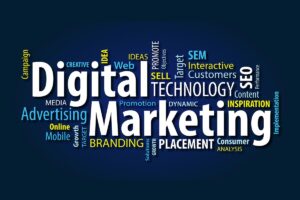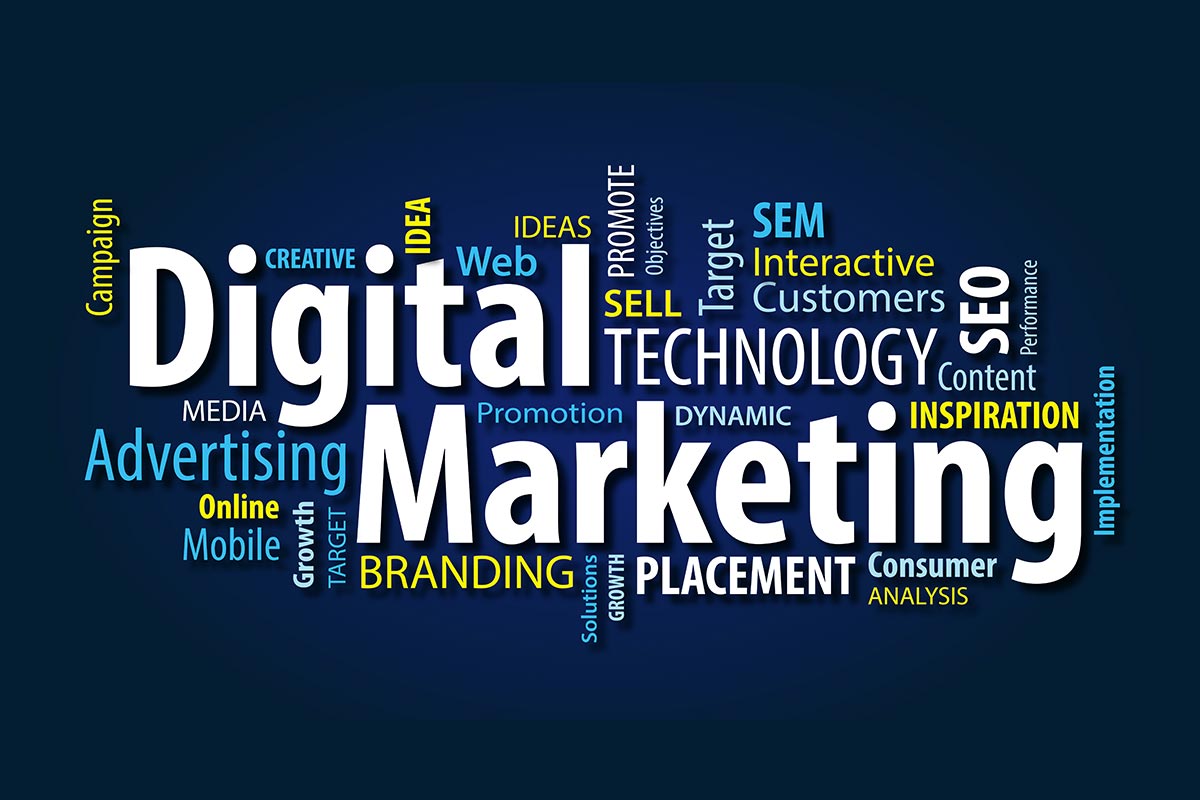Why Digital Marketing Matters in 2025
The way people interact with businesses has changed dramatically. Most of us spend hours online every day — browsing websites, scrolling through social feeds, shopping, watching videos, or reading reviews. If businesses want to reach people where they already are, digital marketing is the key.
Here’s why it’s so important:
-
Wider Reach: You can connect with people around the world — or right in your neighborhood.
-
Cost-Effective: Small budgets can still get great results with the right strategies.
-
Measurable Results: You can track what’s working (and what’s not) in real-time.
-
Highly Targeted: Ads and content can be personalized based on user behavior, interests, and location.
-
Always Evolving: New tools and platforms are making marketing smarter and more creative.

Core Types of Digital Marketing
Let’s explore the main categories that make up digital marketing in 2025.
1. Search Engine Optimization (SEO)
SEO is all about optimizing your website so it appears higher in search engine results (like Google or Bing). When someone searches for “best running shoes” or “how to start a blog,” you want your site to be on that first page.
SEO includes:
-
Keyword research
-
Optimizing website speed and mobile experience
-
Creating high-quality, helpful content
-
Earning backlinks from trusted websites
Why it matters: It brings in free, long-term traffic.
2. Search Engine Marketing (SEM) / Pay-Per-Click (PPC)
Unlike SEO, which is organic, SEM is paid. You bid on keywords to appear in search results as sponsored listings.
Example platforms:
-
Google Ads
-
Microsoft Ads
-
Amazon Sponsored Ads
Why it matters: Fast results, highly targeted visibility, and detailed tracking.
3. Content Marketing
Content marketing is about creating valuable, relevant content that attracts and retains your audience. This could be in the form of:
-
Blog posts
-
Videos
-
Podcasts
-
Infographics
-
Ebooks or guides
In 2025, content that educates, entertains, or solves a problem tends to perform best.
Why it matters: Content builds trust, improves SEO, and supports every other digital marketing channel.
4. Social Media Marketing
Social media platforms are where people spend a lot of their time. Digital marketers use them to engage with audiences, build brand awareness, and drive traffic or sales.
Popular platforms in 2025:
-
Instagram
-
TikTok
-
LinkedIn
-
YouTube
-
Facebook
-
X (formerly Twitter)
Social media strategies include:
-
Posting engaging content regularly
-
Running paid ads
-
Collaborating with influencers or creators
-
Creating short-form videos and Stories
Why it matters: It humanizes your brand and builds community.
5. Email Marketing
Email marketing is one of the oldest — and still most powerful — digital marketing tools. You collect emails through a website, store, or event, then send newsletters, product updates, or exclusive offers.
Modern email tools allow for:
-
Personalization based on user behavior
-
Automated campaigns (e.g., welcome sequences)
-
A/B testing and segmentation
Why it matters: It delivers the highest ROI (return on investment) among all digital channels.
6. Influencer and Creator Marketing
People trust people more than brands. Influencer marketing taps into that trust by having creators promote your product or service to their audience.
In 2025, it’s not just about big celebrities. Micro and nano-influencers (with smaller, engaged audiences) can be highly effective — and affordable.
Why it matters: Influencers bring authenticity, reach, and social proof.
7. Affiliate Marketing
Affiliate marketing is when other people or websites promote your products and earn a commission for every sale or lead they bring in. This is often done via:
-
Blog posts
-
YouTube videos
-
Review websites
-
Discount codes or referral links
Why it matters: You only pay when results happen — it’s performance-based.
8. Mobile & App Marketing
With most internet activity happening on smartphones, mobile marketing is crucial. This includes:
-
SMS marketing
-
In-app advertising
-
Push notifications
-
Mobile-friendly design
Brands are also focusing on creating apps to provide more personalized experiences and build loyalty.
Why it matters: It’s where your customers already are — on their phones.
9. AI and Automation in Digital Marketing
AI is transforming how we do digital marketing in 2025. From chatbots and AI writing tools to predictive analytics and personalized product recommendations, automation makes everything faster and more efficient.
Popular uses of AI in marketing:
-
Writing product descriptions or emails
-
Chatbots for 24/7 customer support
-
Dynamic ads that adjust based on user behavior
-
Forecasting what customers might buy next
Why it matters: AI helps you do more, with less time and fewer resources.
Key Digital Marketing Trends in 2025
Staying current is critical. Here are some big trends shaping the landscape:
-
Video still rules — especially short-form (under 60 seconds)
-
AI-generated content and automation tools are mainstream
-
Voice search and smart assistants (like Alexa and Siri) influence SEO strategies
-
First-party data is crucial as third-party cookies fade away
-
Interactive content (like quizzes and polls) boosts engagement
-
Sustainability and ethical marketing appeal to conscious consumers
Tools to Kickstart Your Digital Marketing
Here are a few beginner-friendly tools in each category:
| Category | Tool |
|---|---|
| SEO | Google Search Console, Yoast, Ubersuggest |
| Content | Canva, Grammarly, ChatGPT |
| Social Media | Buffer, Later, Hootsuite |
| Mailchimp, ConvertKit, Brevo | |
| Analytics | Google Analytics 4, Hotjar |
| Ads | Google Ads, Meta Ads Manager |
| AI Tools | Jasper, Copy.ai, Notion AI |
How to Get Started in Digital Marketing
If you’re just starting out, don’t try to do everything at once. Here’s a simple plan:
-
Define your goal – e.g., more website visitors, more sales, or brand awareness.
-
Know your audience – Who are they? Where do they hang out online?
-
Pick 1–2 channels to focus on at first (e.g., SEO + Instagram).
-
Create consistent, helpful content and experiment.
-
Track results – Use analytics to learn what’s working.
-
Keep learning – Digital marketing is always evolving.
Final Thoughts
Digital marketing in 2025 is more exciting and accessible than ever. You don’t need to be a tech expert or have a big budget to get started. With the right strategies, creativity, and tools, anyone can use digital marketing to grow a brand, share a message, or build a business.
Start small, stay curious, and keep testing what works. The digital world is full of opportunity — you just need to know how to reach your audience where they are.
